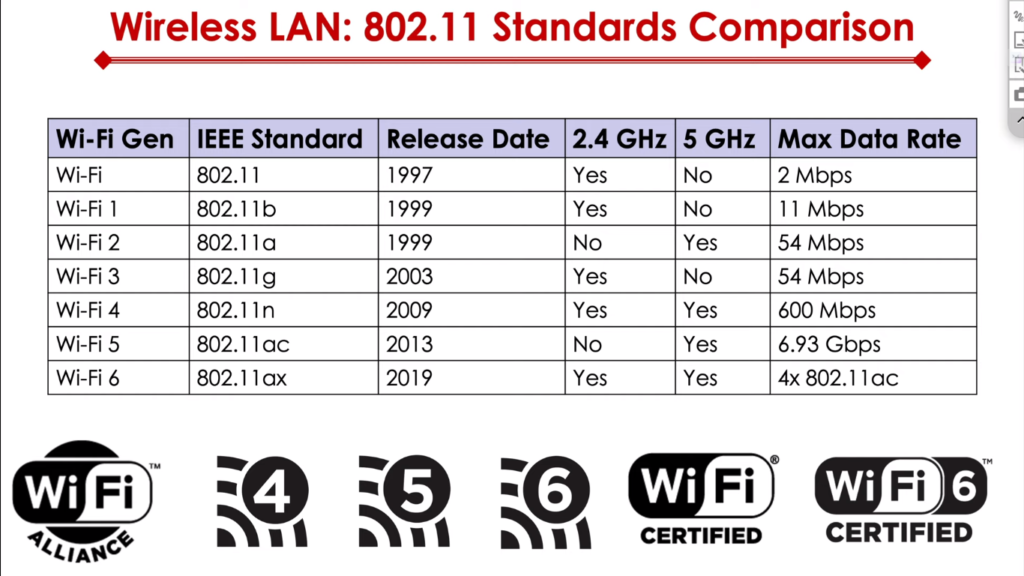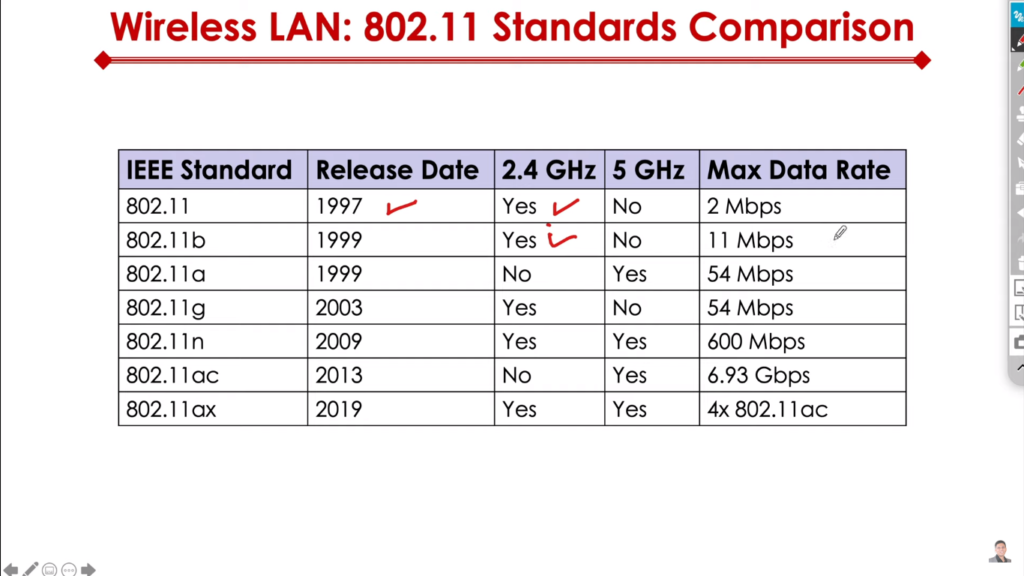
The Evolution of Wi-Fi: Introduction:
Join us as we take a journey through the evolution of Wi-Fi standards, starting from its humble beginnings in 1997 and culminating in the latest and greatest 802.11ax standard.
From 2 Mbps to 6.93 Gbps: A Remarkable Evolution
The 802.11 standards began in 1997 with the release of the first iteration, supporting 2.4GHz and a rather modest 2 Mbps data rate. Fast forward to 802.11ac, and we saw a groundbreaking leap with support for 5GHz and a staggering throughput of 6.93 gigabits. What a journey!
The Surprising Success of 802.11b
Despite its technological inferiority, 802.11b emerged victorious due to the initial shortage of 802.11a technology. This unexpected turn of events reshaped the Wi-Fi landscape, demonstrating that market dynamics often defy technical superiority.
Navigating the Alphabet Soup: From 802.11g to 802.11ax
Subsequent standards such as 802.11g and 802.11n further improved data rates and expanded support for multiple frequency bands. Fast forward to 802.11ax, the latest marvel, supporting both 2.4 and 5 gigahertz bands with four times the data rate of 802.11ac. The advancement is undeniable. banks and companies, promising a secure future for digital transactions and data protection.

The Client-Access Point Conundrum
While the Wi-Fi standards have soared to new heights, the support for these standards varies across different devices. Users with older devices might find themselves limited by outdated standards, requiring both hardware and software upgrades to harness the full power of 802.11ax.
Embracing 5G: A Parallel Evolution
Drawing a parallel to cellular technology, the transition from 3G to 4G to 5G mirrors the evolution of Wi-Fi standards. The transition is intuitive, with 5G promising higher throughput than its predecessors, aligning with the ever-increasing appetite for faster data speeds.
Demystifying Wi-Fi Generations and Symbols
The Wi-Fi Alliance brought order to the chaotic world of IEEE standards, introducing Wi-Fi generations to simplify the landscape. From Wi-Fi 4 to Wi-Fi 6, each generation signifies a leap in capabilities and future-proofs wireless infrastructure, encapsulated by the distinctive Wi-Fi symbols.
Conclusion:
As we bid adieu, let’s remember that the evolution of Wi-Fi standards is not just about faster speeds and broader support—it’s about building a wireless ecosystem that adapts to our ever-changing needs and propels us into the future. computing holds the key to unlocking unprecedented potential across industries, ensuring a quantum leap in technological evolution.

Pingback: The Fascinating World of Self-Driving Cars: How They Work and Impact on Society - FUTURE TREND FLOW
Pingback: Biometric Security: Balancing Convenience and Risk | Explore
Pingback: AGI Robot | OpenAI Game-Changer in Robotics | Cutting-Edge